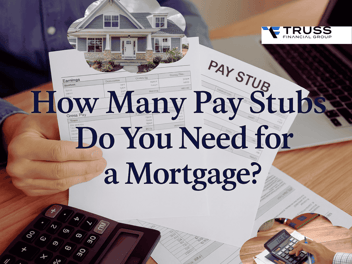3 min read

Hate reading? Me too, watch the video here:
One of the challenges often faced by the self-employed when applying for a mortgage is proving their income. With less predictable income than traditional employees and a more complex tax situation, can self-employed professionals get mortgage options? Fortunately, there are tailored solutions available, one of which is a self-employed mortgage loan, using bank statement deposits as income to qualify for a mortgage. This blog post aims to demystify this approach, helping the self-employed navigate their path to homeownership.
Understanding Bank Statement Mortgages
Bank statement mortgages are an alternate type of home loan designed for those who don't fit into the traditional employee mold. This includes freelancers, independent contractors, and business owners. With a bank statement mortgage, you use your bank statement deposits as a proof of income, instead of traditional pay stubs or tax returns.
Here's how it works: you provide 12 to 24 months of your bank statements to the lender, who then calculates your monthly income based on the deposits shown on those statements. This method effectively demonstrates your cash flow and ability to repay the loan, even if your tax returns might not reflect it due to deductions and write-offs commonly used by self-employed professionals.
The Advantages
-
Bypassing Tax Return Hurdles: Self-employed professionals often claim multiple business deductions to minimize their taxable income. However, this can make them appear less financially capable on paper, presenting a challenge when applying for a mortgage. Bank statement mortgages sidestep this issue, allowing lenders to base their decision on actual cash flow instead.
-
Flexibility: Bank statement loans are more flexible in terms of proof of income, which is ideal for people with less traditional income sources. As long as regular deposits can be demonstrated, lenders are often more receptive.
-
Simplifying the Process for Business Owners: For self-employed individuals who have their personal and business accounts intertwined, bank statement mortgages can simplify the mortgage process by using these bank statements to validate income.
The Considerations
-
Higher Interest Rates: Because bank statement loans are considered non-conventional and carry a higher risk for lenders, they often come with higher interest rates compared to traditional mortgages.
-
Down Payment: Bank statement mortgage loans may require a larger down payment, often 20% or more, depending on the lender's policies and the borrower's financial condition.
-
Credit Score: A good credit score is usually necessary to qualify for a bank statement mortgage. The exact score required can vary between lenders, but those with a score below 600 may find it more challenging to secure a loan.
-
Proof of Business: Lenders will typically require proof that you have been self-employed for a certain period, often at least two years. This helps assure them that your income is stable and ongoing.
Table of Content

Take your pick of loans
Experience a clear, stress-free loan process with personalized service and expert guidance.
Get a quote


